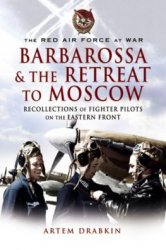The documents pertaining to the Guomindang government's policies were published after the 1970s, such as Qin Xiaoyi (ed.), Zhonghua minguo zhongyao shiliao chubian - duiRi kangzhan shiqi, di san bian, zhanshi waijiao II [First Compilation of Important Historical Documents of the Republic of China - The Anti-Japanese War Period, vol. III, War-time Foreign Relations, II] (Taipei: Zhongguo Guomindang zhongyang dangshi weiyuanhui, 1981). Some of the Soviet documents pertaining to China for this period have been published by Shen Zhihua and others; see Shen Zhihua et al. (eds.), Sulian lishi dang’an xuanbian [Collection of Selected Soviet Historical Documents] (Beijing: Zhongguo shehui kexue, 2002); and Chaoxian zhanzheng: Eguo dang’anguan dejiemi wenjian [The Korean War: Declassified Documents from Russian Archives], 2 vols. (Taipei: Zhongyang yanjiuyuan jindaishi yanjiusuo, 2003).
This chapter uses historical documents that have been published in China since the 1980s. Major archives in China, such as the Central Archive, remain inaccessible to independent research projects, and therefore it is at present difficult to give China the role in the history of the period that the country deserves.
Zhongyang dang'anguan (ed. and comp.), Zhonggong zhongyang wenjian xuanji [Selected Documents of the CCP Central Committee], 18 vols. (Beijing: Zhongyang dangxiao, 198992), vols. XV-XVIII covering the postwar period; Mao Zedong wenji [A Collection of Mao Zedong's Works], 8 vols. (Beijing: Renmin, 1993-97; Mao Zedong zai qida de baogao he jianghua ji [Collection of Mao Zedong's Reports and Speeches at the Seventh CCP Congress] (Beijing: Zhongyang wenxian, 1995); and Zhonggong zhongyang wenxian yanjiushi (ed. and comp.), Jianguo yilai zhongyao wenxian xuanbian [A Selection of Important Documents since the Founding of the People's Republic of China], 17 vols. (Beijing: Zhongyang wenxian, 1992), are of key importance to scholars. For military affairs, see Zhongyang wenxian yanjiushi (ed. and comp.), Zhou Enlai junshi wenxuan [Selected Military Papers of Zhou Enlai], 4 vols. (Beijing: Renmin, 1997). Zhongyang dang'an guan and the CCP Department of United Front (eds. and comps.), Zhonggong zhongyang jiefang zhanzheng shiqi tongyi zhanxian wenjian xuanbian [A Selection of Documents on the CCP Central Committee's United Front during the Liberation War Period] (Beijing: Dang'an, 1988), is crucial for understanding the policies of the CCP.
There is now a large literature in many languages dealing with this period. For an overview of research in China, see Yafeng Xia, "The Study of Cold War International History in China: A Review of the Last Twenty Years," Journal of Cold War Studies, 10, i (Winter 2008), 81-115. Steven Levine, Anvils of Victory: The Communist Revolution in Manchuria, 1945-1949 (New York: Columbia University Press, 1987), was among the first to explore the complex interrelations between the CCP's postwar development in Manchuria and Soviet and American policies. Odd Arne Westad, Cold War and Revolution: Soviet-American Rivalry and the Origins of the Chinese Civil War (New York: Columbia University Press, 1993), provides an original explanation of the Chinese Civil War by placing it within the context of the emerging Soviet-American confrontation. Chen Jian's classic China’s Road to the Korean War: The Making of the Sino-American Confrontation (New York: Columbia University Press, i994) transformed our understanding of the domestic causes of China's entry into the war, while his Mao's China and the Cold War (Chapel Hill, NC: University of North Carolina Press, 2001) offers a convenient framework for understanding many of the issues discussed in the present chapter. Shu Guang Zhang's work, Mao’s Military Romanticism: China and the Korean War, 1950-1953 (Lawrence, KS: University Press of Kansas, 1995), emphasizes "strategic culture" as a tool for understanding Chinese policies. Niu Jun, From Yan’an to the World: The Origin and Development of Chinese
Communist Foreign Policy (Norwalk, CT: Eastbridge, 2005; Chinese original 1992), studies how the CCP handled and manipulated its relations with the United States and the Soviet Union after World War II. For a contrasting view, underlining CCP enmity toward the United States, see Michael M. Sheng, Battling Western Imperialism: Mao, Stalin, and the United States (Princeton, NJ: Princeton University Press, 1997). For an overview of the debate, see "Symposium: Rethinking the Lost Chance in China," Diplomatic History, 21, i (Winter 1997), with contributions from Warren Cohen, ChenJian, Odd Arne Westad, John Garver, and Michael Sheng. Yang Kuisong, Mao Zedong yu Mosike de enen yuanyuan [Mao Zedong's Gratitude toward and Grievances against Moscow] (Nanchang: Jiangxi renmin, 2005), meticulously presents Mao's complex relations with the Soviet Union. Shen Zhihua, Mao Zedong, Sidalin yu chaoxian zhanzheng [Mao Zedong, Stalin, and the Korean War] (Guangzhou: Guangdong renmin, 2003), carefully reexamines the connections between the Sino-Soviet alliance and the outbreak of the Korean War.
For other aspects of China's foreign policy during this period, see Qiang Zhai, China and the Vietnam War (Chapel Hill, NC: University of North Carolina Press, 2000), and Qiang Zhai, "Tibet and Chinese-British-American Relations in the Early 1950s," Journal of Cold War Studies, 8, 3 (Summer 2006), 34-53. On the latter issue, see also Michael M. Sheng, "Mao, Tibet, and the Korean War," Journal of Cold War Studies, 8, 3 (Summer 2006), 15-33. On Mongolia, see Xiaoyuan Liu, Reins of Liberation: An Entangled History of Mongolian Independence, Chinese Territoriality, and Great Power Hegemony, 1911-1950 (Stanford, CA: Stanford University Press, 2006).
Some important memoirs and biographies have been published since the early i980s; see, for instance, Peng Dehuai, Peng Dehuai zishu [Autobiographical Notes of Peng Dehuai] (Beijing: Renmin, i98i); Nie Rongzhen, Nie Rongzhen huiyilu [Memoirs of Nie Rongzhen] (Beijing: Jiefang, 1984; Engl. transl. 1988); Wu Xiuquan, Zai waijiaobu banian dejingli [Eight-Year Experience in the Foreign Ministry] (Beijing: Shijie zhishi, 1983; Engl. transl. 1985); and, not least, those of Mao's Russian interpreter Shi Zhe, Zai lishijuren shenbian: Shi Zhe huiyilu [Together with Historical Giants: Memoirs of Shi Zhe] (Beijing: Zhongyang wenxian, 1991).
See also sections i3 and i7 of this bibliographical essay.




 World History
World History









